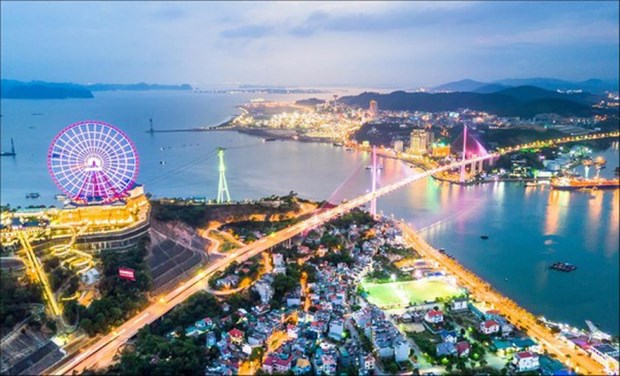The city plans to apply technologies in various sectors including health, education, governance, transport, finance-banking and taxation with an aim to provide convenient services to people and businesses.
Authorities plan to accelerate the smart city development process and make the city a modern metropolis by 2020.
Five smart-city projects have investment for the 2017-20 period, including plans to upgrade lighting system, set up online tax collection system and technology application in urban management and improve tourism safety on Ha Long Bay.

A corner of Ha Long city (Photo: baochinhphu.vn)
According to Nguyen Ngoc Son, chairman of the Ha Long city People’s Committee, authorities have completed drawing up plans of these projects.
Nearly 3,500 Light Emitting Diode (LED) lamps have been installed on 18 key roads of the city.
Le Thanh Quynh, deputy head of the city’s public service management board said a public lighting controlling centre has been built to supervise the operation of the city’s lighting system.
The LED lamps help save electricity and more will be installed in the areas far from the city centre, Quynh said.
To develop a smart city, local agencies have piloted smart tax collection system at 34 enterprises to avoid tax losses.
Nguyen Huu Ban, head of the city’s Taxation Department said his agency has applied technology in managing electronic bills of businesses, households and individuals. A total 986 out of 3,607 local enterprises have used electronic bills. More than 3,000 units pay tax online.
The city aims to apply electronic bills at 60 per cent of local businesses by this year and all by 2020.
The city also aims at administrative procedure reform and building e-Government as well as look paperless hospitals.
The provincial general hospital, Obstetrics and Pediatrics Hospital and Bai Chay Hospital are also using electronic health records.
Patients may use hospital-issued cards that show their personal information and health records to book medical check-up appointments.
Ha Long City is home to Ha Long Bay which was twice recognised as a UNESCO World Natural Heritage site in 1994 and 2000.
Earlier Prime Minister Nguyen Xuan Phuc approved a master plan to develop the city into a world-class tourism and service hub by 2050.
Under the plan, Ha Long will be converted into a civilised and friendly sea tourism city with synchronous and modern socio-economic infrastructure systems./.